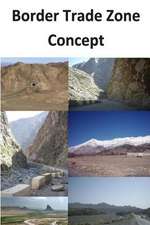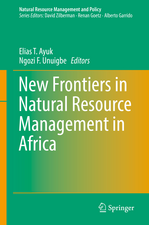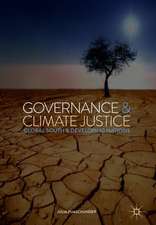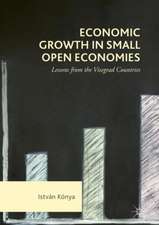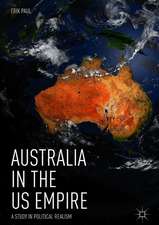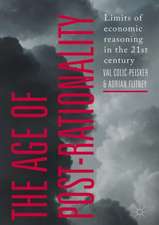New Political Economy of Energy in Europe: Power to Project, Power to Adapt: International Political Economy Series
Editat de Jakub M. Godzimirskien Limba Engleză Hardback – 11 oct 2018
Chapter 4 of this book is available open access under a CC BY 4.0 license at link.springer.com
| Toate formatele și edițiile | Preț | Express |
|---|---|---|
| Paperback (1) | 525.01 lei 6-8 săpt. | |
| Springer International Publishing – feb 2019 | 525.01 lei 6-8 săpt. | |
| Hardback (1) | 530.42 lei 6-8 săpt. | |
| Springer International Publishing – 11 oct 2018 | 530.42 lei 6-8 săpt. |
Din seria International Political Economy Series
- 9%
 Preț: 831.25 lei
Preț: 831.25 lei - 20%
 Preț: 751.84 lei
Preț: 751.84 lei - 17%
 Preț: 490.25 lei
Preț: 490.25 lei - 17%
 Preț: 363.48 lei
Preț: 363.48 lei - 20%
 Preț: 690.96 lei
Preț: 690.96 lei - 20%
 Preț: 627.55 lei
Preț: 627.55 lei - 9%
 Preț: 762.80 lei
Preț: 762.80 lei -
 Preț: 430.59 lei
Preț: 430.59 lei -
 Preț: 428.68 lei
Preț: 428.68 lei -
 Preț: 147.23 lei
Preț: 147.23 lei - 20%
 Preț: 566.64 lei
Preț: 566.64 lei -
 Preț: 385.08 lei
Preț: 385.08 lei -
 Preț: 389.11 lei
Preț: 389.11 lei - 15%
 Preț: 644.30 lei
Preț: 644.30 lei -
 Preț: 389.31 lei
Preț: 389.31 lei - 15%
 Preț: 644.30 lei
Preț: 644.30 lei -
 Preț: 413.84 lei
Preț: 413.84 lei -
 Preț: 387.38 lei
Preț: 387.38 lei - 15%
 Preț: 638.89 lei
Preț: 638.89 lei - 15%
 Preț: 644.63 lei
Preț: 644.63 lei - 18%
 Preț: 893.71 lei
Preț: 893.71 lei -
 Preț: 412.47 lei
Preț: 412.47 lei -
 Preț: 325.08 lei
Preț: 325.08 lei -
 Preț: 395.47 lei
Preț: 395.47 lei - 15%
 Preț: 641.85 lei
Preț: 641.85 lei -
 Preț: 391.40 lei
Preț: 391.40 lei -
 Preț: 388.34 lei
Preț: 388.34 lei - 15%
 Preț: 640.55 lei
Preț: 640.55 lei -
 Preț: 389.70 lei
Preț: 389.70 lei - 15%
 Preț: 646.30 lei
Preț: 646.30 lei - 15%
 Preț: 637.78 lei
Preț: 637.78 lei - 15%
 Preț: 643.84 lei
Preț: 643.84 lei -
 Preț: 386.99 lei
Preț: 386.99 lei - 15%
 Preț: 641.53 lei
Preț: 641.53 lei -
 Preț: 386.81 lei
Preț: 386.81 lei - 15%
 Preț: 639.73 lei
Preț: 639.73 lei - 18%
 Preț: 944.19 lei
Preț: 944.19 lei -
 Preț: 391.40 lei
Preț: 391.40 lei -
 Preț: 330.65 lei
Preț: 330.65 lei -
 Preț: 394.12 lei
Preț: 394.12 lei -
 Preț: 386.99 lei
Preț: 386.99 lei -
 Preț: 386.81 lei
Preț: 386.81 lei -
 Preț: 387.75 lei
Preț: 387.75 lei - 15%
 Preț: 634.68 lei
Preț: 634.68 lei -
 Preț: 392.60 lei
Preț: 392.60 lei - 15%
 Preț: 641.53 lei
Preț: 641.53 lei - 15%
 Preț: 640.06 lei
Preț: 640.06 lei - 15%
 Preț: 643.16 lei
Preț: 643.16 lei - 15%
 Preț: 642.68 lei
Preț: 642.68 lei - 15%
 Preț: 641.85 lei
Preț: 641.85 lei
Preț: 530.42 lei
Preț vechi: 624.03 lei
-15% Nou
Puncte Express: 796
Preț estimativ în valută:
101.51€ • 105.59$ • 83.80£
101.51€ • 105.59$ • 83.80£
Carte tipărită la comandă
Livrare economică 15-29 aprilie
Preluare comenzi: 021 569.72.76
Specificații
ISBN-13: 9783319933597
ISBN-10: 3319933590
Pagini: 282
Ilustrații: XXI, 267 p. 10 illus.
Dimensiuni: 148 x 210 x 25 mm
Greutate: 0.5 kg
Ediția:1st ed. 2019
Editura: Springer International Publishing
Colecția Palgrave Macmillan
Seria International Political Economy Series
Locul publicării:Cham, Switzerland
ISBN-10: 3319933590
Pagini: 282
Ilustrații: XXI, 267 p. 10 illus.
Dimensiuni: 148 x 210 x 25 mm
Greutate: 0.5 kg
Ediția:1st ed. 2019
Editura: Springer International Publishing
Colecția Palgrave Macmillan
Seria International Political Economy Series
Locul publicării:Cham, Switzerland
Cuprins
Chapter 1: Introduction: The Changing (Geo)Politics of Energy in Europe.- Part I: Inside–Out: Projecting EU Rules and Ideas.- Chapter 2: Regulatory Power or Market Power Europe? Leadership and Models for External EU Energy Governance.- Chapter 3: The EU Strategy towards External Gas Suppliers and their Responses: Norway, Russia, Algeria and LNG.- Chapter 4: EU Climate and Energy Policy: New Challenges for Old Energy Suppliers .- Part II: Outside–In: National Adaptations.- Chapter 5: Channels of Influence, or How Non-Members Can Influence EU Energy Policy.- Chapter 6: Norway: A Small State in a Great European Energy Game.- Chapter 7: German Energiewende: Climate Change in Focus, Competitiveness and Energy Security aside?.- Chapter 8: Poland, or How to Cope with Decarbonization and Diversification.- Chapter 9: The Baltics: Between Competition and Cooperation.- Chapter 10 : Conclusions: What the EU Has Achieved and What Is in the Offing?.
Notă biografică
Jakub M. Godzimirski is Research Professor at the Norwegian Institute of International Affairs (NUPI) in Oslo, Norway. He has been working on Russian foreign and security policy issues at NUPI for more than 20 years, paying special attention to the role of energy resources in Russian grand strategy. In addition he has worked on European policy and its impact on developments in Central and Eastern Europe, including Russian-European relations.
Textul de pe ultima copertă
This edited collection details and analyses the dramatic changes that the international political economy of energy has undergone in the past decade. This change began with the increasing assertiveness of Russia when the oil price rose above the $100 mark in 2008. This, combined with the rise of shale oil and gas, made the USA all but self-sufficient in terms of fossil fuels. The collapse of the oil price in 2014-15, Saudi Arabia’s new strategy of defending its market share and the increasingly tense and controversial relationship between the West and Russia all worked to further strengthen the geopolitical dimension of energy in Europe. The global result is a world in which geopolitics play a bigger part than ever before; the central question the authors of this volume grapple with is how the EU – and European small states – can deal with this.Jakub M. Godzimirski is Research Professor at the Norwegian Institute of International Affairs (NUPI) in Oslo, Norway. He has been working on Russian foreign and security policy issues at NUPI for more than 20 years, paying special attention to the role of energy resources in Russian grand strategy. In addition he has worked on European policy and its impact on developments in Central and Eastern Europe, including Russian-European relations.
Chapter 4 of this book is available open access under a CC BY 4.0 license at link.springer.com
Chapter 4 of this book is available open access under a CC BY 4.0 license at link.springer.com
Caracteristici
Analyses the dramatic changes that the international political economy of energy has undergone in the past decade Outlines the impact of increased tension between Russia and the West Demonstrates compellingly why it can be said that geopolitics plays a larger role in today's world than it ever has previously Provides insight into how the EU can effectively deal with this Considers both European Union policy and the policies of individual European small states

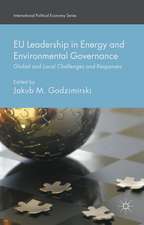

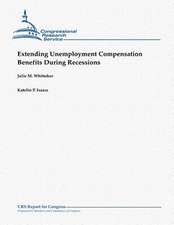
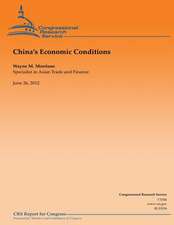
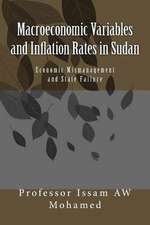










![Where the UK Went Wrong [1945-2015]](https://i2.books-express.ro/bt/9781493193479/where-the-uk-went-wrong-1945-2015.jpg)
